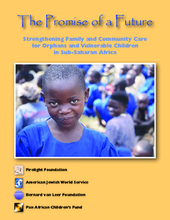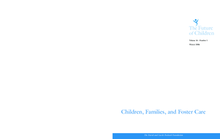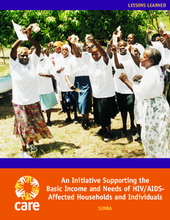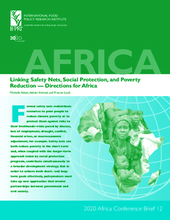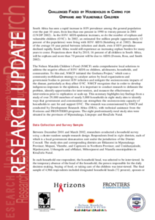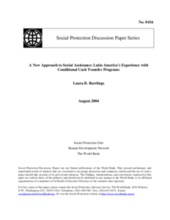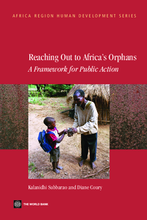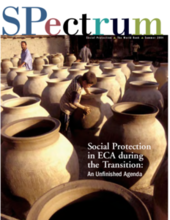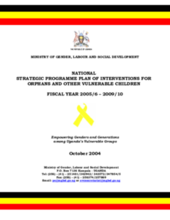Displaying 431 - 440 of 461
A brief document advocating for the strengthening and support of community based responses to children and families affected by HIV/AIDS in Africa.
Evaluation of the Bolsa Escola Program, which was a Brazilian social services program that provided cash transfers to families provided that their school-aged children would be enrolled in and attending school. Examines how beneficiaries were selected, registered, and monitored. Cites inconsistencies in implementation and roles of municipal governments as significant finding.
In assessing the practice of foster care in the US and its current limitations, this series of articles advocates for the implementation of health assessments for all children in care, support to preserve permanency and assist birth families, comprehensive supports for foster families, specialized services for children in need, increased cultural competency in social work practice, coordinated services across sectors for families in need and comprehensive well being assessments for children in care.
This paper outlines a program (SIMBA) established to work with local AIDS Service Organizations (ASOs) in Zimbabwe to promote economic development in HIV/AIDS affected communities. Efforts to promote capacitiy building of organizations, self-managed and savings-based microfinance services, and basic business management training are described.
A short discussion of various safety net program options and considerations for effective program design. Focus on reducing poverty in sub-Saharan Africa
Outlines key findings of survey conducted to investigate the challenges faced by households caring for OVC in South Africa. Conclusion delineates six potential responses to community needs.
This paper examines the impact of conditional cash transfers in Latin America. It illustrates successful short-term impact, but recommends continued evaluation to assess the long-term impact.
A detailed book providing evidence-based guidelines for approaches and interventions to best mitigate the various risks confronted by OVC.
Provides a brief overview of child welfare reforms implemented in the ECA Region and the collective effort to move away from over-emphasis on institutional care through the Changing Minds, Policies and Lives Project.
The NSPPI provides overall guidance to implementers to mitigate the impact of orphan hood and other vulnerabilities among children in Uganda.

